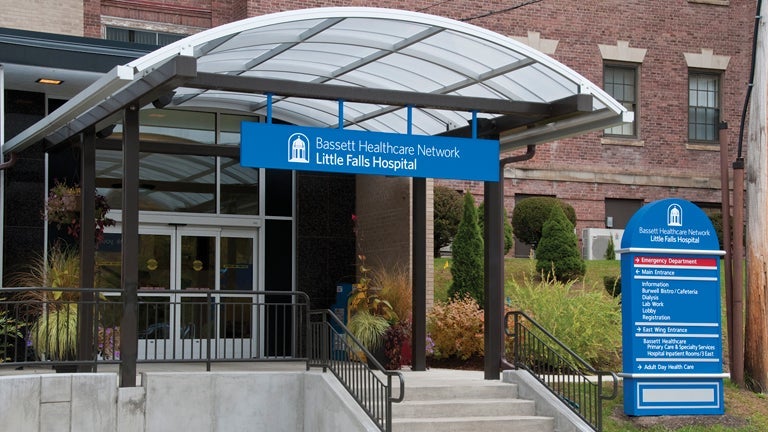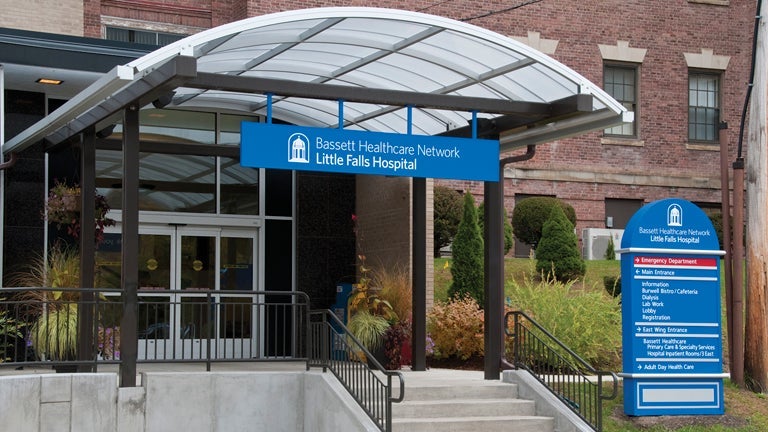Endometrial Ablation
Relief for Abnormally Heavy Menstrual Periods
If you experience unusually heavy menstrual bleeding and approaches such as hormonal treatments have not been effective, you may consider endometrial ablation. Bassett Healthcare Network offers this gynecologic surgery, which also addresses the problem of endometriosis – a condition where endometrial tissue is seen growing outside the uterus, causing pelvic pain.
Reasons for Endometrial Ablation
Women who choose endometrial ablation usually have experienced one of the following women’s health conditions:
- Heavy menstrual bleeding, also called menorrhagia, defined as soaking a tampon or pad in two hours or less
- Menstrual periods longer than eight days
- Menstrual periods that keep you from enjoying your normal activities
- Anemia, or low red blood cell levels, due to heavy bleeding
Endometrial ablation is less invasive and presents fewer complications than a hysterectomy. In fact, after the ablation procedure, endometrial tissue regenerates and grows a healthy new layer.
Endometrial Ablation Surgery
Your endometrial ablation surgery at Bassett Healthcare Network will happen in a hospital operating room, and you will receive either a sedative or a general anesthesia. Your surgeon will dilate your uterus, and will use any of the following methods to eradicate the uterine lining:
- Electrosurgery, using an electric current to remove the lining
- Cryoablation, using liquid nitrogen to freeze the affected area
- Radiofrequency, using radio waves to heat and destroy the lining
- Microwave ablation, which uses energy from a microwave-generating machine to heat the uterine lining
- Free-flowing hot fluid, in which the surgeon fills the uterus with heated salt water for 10 minutes to destroy the lining
- Heated balloon, in which the surgeon places a small balloon filled with hot liquid inside the uterus, using heat from the balloon to destroy the tissue
Recovering from Endometrial Ablation
At Bassett Healthcare Network, our patients are usually able to return home the same day as their ablation procedure. You may notice light vaginal bleeding and cramping for a day or two, and watery vaginal discharge for several weeks. Frequent urination and nausea also are common side effects of the procedure.
Ask Your Primary Care Practitioner About a Referral
If you experience unusually heavy or lengthy menstrual periods, talk to your primary care physician or practitioner about a referral. Endometrial ablation is not recommended for women who wish to have children, or who are menopausal.
Bassett Healthcare Network offers endometrial ablation in Central New York, including Cooperstown, Oneonta, Herkimer, Cobleskill, Little Falls, and other locations.



